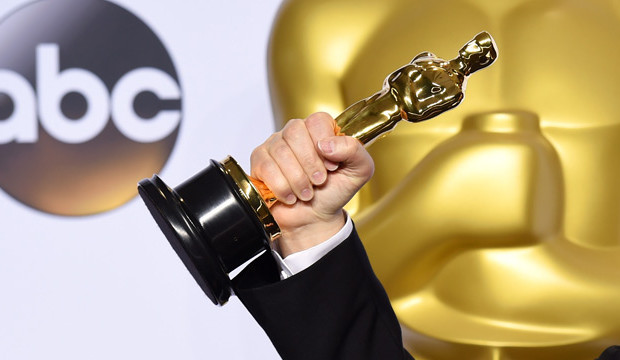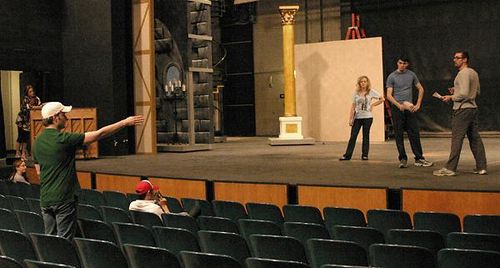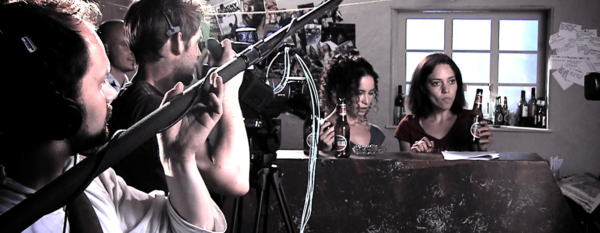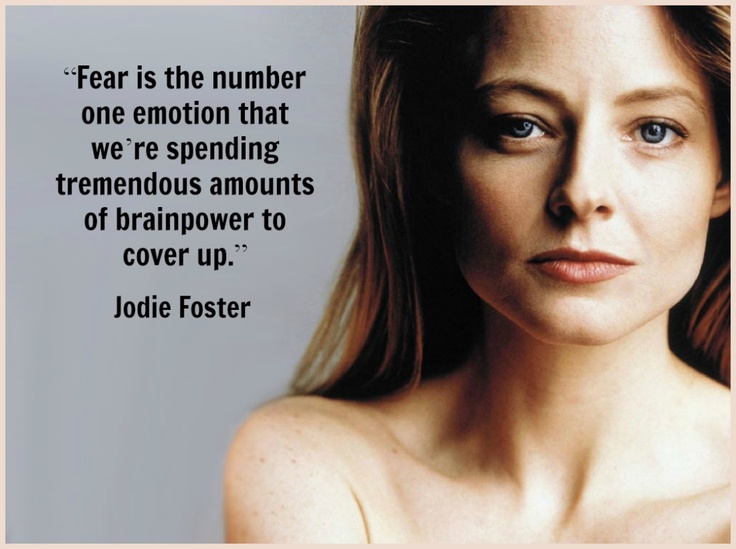How to Become an Actor
In my work as a festival director and a film director, I am often asked for advice from actors. As well as, “please consider me for any of your upcoming productions”.
Well, of course. I love working with actors. As I tend to film with almost no crew, the way I make films tends to focus on letting the actors have the space and time to do their thing. For me, once I have a good script, the next thing on my priority list is great performances.
A great story and great performances will carry you a long way. Further than great cinematography on it’s own. You know, there’s only so long you can watch perfectly lit slow motion shots of sunsets and skyscrapers…
If you’re just starting out, one thing you need to know – there is an abundance of actors. Especially in major cities, like London, New York, of course L.A. That’s great for me as a filmmaker, as I’m spoilt for choice.
I’ve been a professional composer-musician and a screenwriter, before now, so totally I understand how it feels to be struggling against intense competition. One thing I learned (after decades of being tough on myself) – accept that it’s tough and pat yourself on the back just for giving it a go.
Really.
Two questions
But let me try to answer this rather big, unwieldy question. How do you become an actor?
Actually, it’s two big questions. 1: how do you learn the craft of acting? and 2: how do you become a professional, working actor?
If I could answer these questions with a guaranteed-to-work method, I would be a rich man. But don’t be fooled – nobody has the definitive answer. There are just too many variabilities and possibilities. Ask any successful actor how they got where they are, you will get a different answer each time.
The reason this answer is tricky, is because answer to number 1 doesn’t necessarily lead to answer number 2. Becoming a skilled actor won’t automatically lead to career success.
The craft
The most obvious (and useful) tip for learning the craft of acting is simple – do as much acting as you can. Just like with learning to play a guitar or learning to write a script, learning to act takes practice.
Some people are more natural actors than others. Just as some are more gifted writers or musicians. However, you simply cannot avoid the hard hours of practice if you want to get the most out of your ability and increase your chances of success.
What options are there, local to you? Drama groups at school or nearby clubs? Friends shooting no budget films who need actors?
Once you decide to take it more seriously there is, of course, the option to go to drama school.
“For every successful actor or actress, there are countless numbers who don’t make it. The name of the game is rejection. You go to an audition and you’re told you’re too tall or you’re too Irish or your nose is not quite right. You’re rejected for your education, you’re rejected for this or that and it’s really tough.” ~ Liam Neeson
Drama school
If you have the money for drama school (or you’re prepared to take on the debt) and you like the idea, great. But if you don’t, then don’t worry.
I was a professional musician and never went to music school. In fact, music is probably the least of my talents yet it currently provides me the most income (even though I haven’t written music professionally since 2006). I’ve also sold screenplays but never went to writing school. I’ve directed several shorts, a feature film and a TV pilot, but never went to film school.
Will you get cast because you went to drama school? Nope. Does any director or producer care if you went to drama school? Nope.
I’m not against drama school. Just don’t feel it’s an insurmountable obstacle if you can’t go.
Stage acting or screen acting
Although they are at their core the same activity – pretending to be a character – acting on a stage requires some different skills to acting in a film. Therefore, you may want to focus on one or the other – film or stage.
By nature, stage acting requires more projection. You need to let those people sitting in the back row know how you’re feeling. You also get to rehearse and then act out the whole story from beginning to end, over and over. Each performance is delivered whole to a watching audience.
Film acting, on the other hand, is almost the opposite. The camera is analysing your face and recording every tiny muscle movement. The shotgun mics are picking up the slightest sound from your mouth. Therefore, you need to be far more subtle in your performance. Hollywood legend Robert De Niro says for some shots you literally have to do “nothing at all”.
Rather than act out the whole story, in scene order, films are made by breaking down each scene into shots. This means you might be waiting around for 4 hours while the crew set up the shot, to then only perform 1 line of dialogue. You the have to repeat this line until the director is happy. Then you go back and wait again while the crew set up the next shot.
In film, shots are often taken out of sequence. In one legendary example, the lead actor in David Lynch’s Eraserhead walked into a door and the shot showing him walking out the other side was filmed 1 year later. This is because that film took several years to complete.
Most films won’t take quite so long to shoot. But you get the idea.
“Acting is behaving truthfully under imaginary circumstances.” ~ Sanford Meisner
The career
If you’re thinking about acting as a career, you have probably had countless people advise you against it. Acting is one of the toughest careers out there, they’ll say. Well, that’s true. Along with the other entertainment and art-based careers.
The truth is, it is hard. But personally, I like a challenge. And I think it helps to understand from the very beginning the scale of it.
You might be one of the lucky ones. The ones who go straight into it, get picked up by a big agent and find themselves with more acting work than they can handle. It’s possible – but chances are this isn’t going to happen.
You’re climbing a mountain, so be prepared. You wouldn’t set off to scale the Matterhorn without serious planning, preparation and physical fitness. You’d also be foolish to set off without being aware of the risks.
And, as with climbing mountains, if you are prepared for the difficulty of a career in acting you are much more likely to succeed. Accept that it’s not going to be easy and do it anyway.
“The actor has to develop his body. The actor has to work on his voice. But the most important thing the actor has to work on is his mind.” ~ Stella Adler
The actor’s showreel
An essential part of a film actor’s CV is their showreel. At least, speaking as a director, it makes it much easier to consider you for a part if I can see you in action first.
But if you can’t get cast in a film, how do you acquire footage for your reel? It’s another one of those Catch 22 situations. However, one well-trodden path will guarantee you some experience and showreel material – volunteer for a low-to-no budget production. Most likely, people working this film are in the same situation as you – trying to get experience and/or showreel material.
Downsides
There are potential disappointments working on these productions. Often the people involved are at the beginning of a steep learning curve (like you are). That means they can be disorganised and messy. Who you end up working with can be very hit and miss. You might get bad direction (or none at all).
Other actors you work with are mostly going to be learning their craft, also. Sometimes these films don’t see the light of day because the director and/or producer aren’t organised enough. Or they simply decide the film was too bad to show anyone and abandon it.
So, those are some of the downsides. However, unless you’re getting cast in regular paid TV shows and films, you should still put yourself forward. Often our best learning experiences come from these disasters. You will still learn something. Plus, you might just meet one or two filmmakers you get on with and want to work with in the future. Hang onto those people.
However, the main reason for getting involved is that some of these projects turn out to be awesome. So, try to wear your rose tinted glasses when offering your services. But also don’t be too shocked if the final film is not as good as you hoped.
“If you really do want to be an actor who can satisfy himself and his audience, you need to be vulnerable.” ~ Jack Lemmon
Headshots
After you have decided you want to become a professional actor, you will need to consider getting professional headshots.
The headshot is considered the single most important marketing tool for an actor. When you are a struggling actor with no acting income, it’s understandably tempting to cut corners and try to get it done cheaply. As a writer-director who has spent his time making films cheaply, I’m not against this. But only if you can get a good result.
I know some actors who are great photographers. In fact, an acting friend of mine became a professional photographer. But if you’re feeling uncomfortable about your headshots, then it might be time to consider paying a professional.
From my director point of view, what works for me is a headshot that somehow conveys something interesting about the actor. Something that makes the actor different and strong, in some way. Casting agents, producers and directors are most likely going through hundreds of headshots. So you want to stand out.
I know it’s tempting to want a photograph that portrays you in the most flattering way. But remember – we are casting for characters not models (unless the character is a model).
I’m not saying you should avoid attractive headshots. Of course not. Just realise that projects are casting for different types of actors to fit all kinds of roles. From IT professionals, to miners, to police officers, to soldiers, medics, alcoholics, muggers, henchmen… the list is infinite.
Not every actor is going to be cast as the romantic lead. There’s a whole load of other parts out there looking for actors. Can you play a balding, racist, helicopter pilot? Can you play a bullying sergeant major whose brutal exterior is hiding her emotional vulnerability?
Here’s some good tips for better headshots.
The most important thing
However you approach your life as an actor, try to remember the most important thing. This thing is the reason why you’re going through this epic struggle to get noticed. This thing took me some years realise, but when I did it really helped me in my work – because it applies to all creatives, in any field.
You see, the most important thing is not you. The most important thing is the work.
So, if you can manage to turn up on set or rehearsal studio with that attitude – you will be a better actor and you will get the most from each project.
The great thing about having this attitude is that the setbacks become less personal. Then you can take advice, rejections or criticism and use them to improve.
Because when we take things personally, we get hurt and angry and build a wall between us and the thing causing us pain. When we are rejected we often reject the rejector. But this means we can’t learn from them.
If you can focus your mind and emotions on delivering the best possible performance, for the good of the project, even if others around you are not – only then will you know you did your best.
Eager to learn more?
Join our weekly newsletter featuring inspiring stories, no-budget filmmaking tips and comprehensive equipment reviews to help you turn your film projects into reality!
Simon Horrocks
Simon Horrocks is a screenwriter & filmmaker. His debut feature THIRD CONTACT was shot on a consumer camcorder and premiered at the BFI IMAX in 2013. His shot-on-smartphones sci-fi series SILENT EYE featured on Amazon Prime. He now runs a popular Patreon page which offers online courses for beginners, customised tips and more: www.patreon.com/SilentEye






